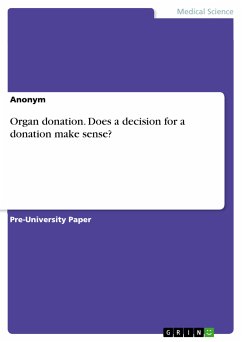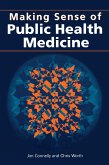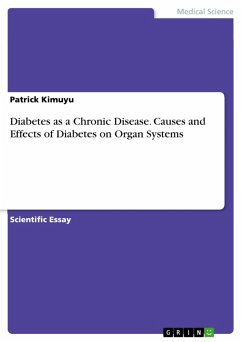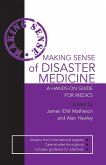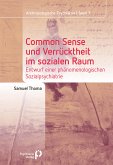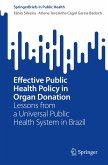Pre-University Paper from the year 2016 in the subject Medicine - Other, grade: 10 Punkte, , language: English, abstract: The life-saving organ transplant can be allowed to seriously ill patients by a post mortal organ donation, so the transference of functioning organs and tissue of a dead to an another person. An organ donation is the basic condition for a transplant. Condition of the organ donation is the approval of the donator while still alive that in case of a death organs may be taken. Today by transplantations it's possible to save the life of the patients with organ failure or in improving quality of life decisively. The aim of such an operation is to restore the function of own organs from the sick people with the help of the taken organs from other people. The following organs can be successfully transplanted: kidneys, liver, lungs, heart, pancreas and intestines. Hands and faces were added to the transplantation list in 2014. Not only organs but also tissue can be donated. Referring to the tissues, they let transplant themselves including the skin, the hard skin from the eyes, the heart valves and parts of the blood vessels and the cartilage-tissue. The body tissue is applicable due to its diversity for the treatment of different injuries, as for example a serious incineration. Generally the post mortal tissue donations are not transplanted directly after the withdrawal, but are cleaned and preserved in special tissue banks. For particular organs, such as the kidney or a part of the liver, a living donation is considered under certain circumstances. Nevertheless, the postmortal organ donation has priority before the living donation.
Dieser Download kann aus rechtlichen Gründen nur mit Rechnungsadresse in A, B, BG, CY, CZ, D, DK, EW, E, FIN, F, GR, HR, H, IRL, I, LT, L, LR, M, NL, PL, P, R, S, SLO, SK ausgeliefert werden.

